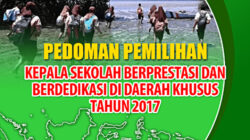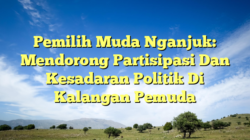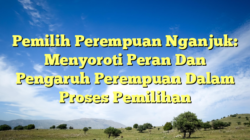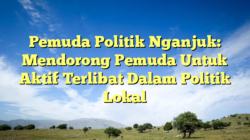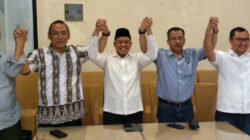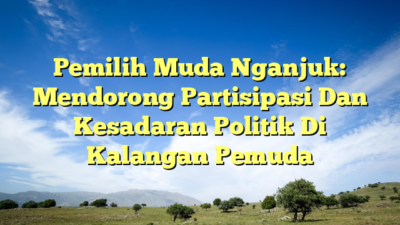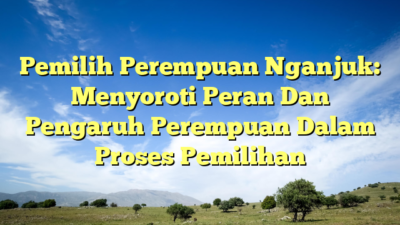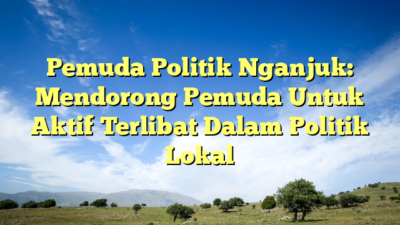Today we’re going to talk about a few fascinating topics that I’m sure you’ll find interesting. We’ll be examining some recent political developments, discussing some technological advancements, and exploring some innovative ideas for working together to achieve common goals.
Bupati dan PJ. Sekda Bangka Barat Tandatangani Nota Kesepakatan dan Perjanjian Kerjasama
First up, let’s take a look at a recent agreement between two government officials in Indonesia. The Bupati and PJ. Sekda Bangka Barat recently signed a Nota Kesepakatan and Perjanjian Kerjasama. But what is this agreement, and why is it important?
The agreement is essentially a memorandum of understanding between local government officials in the Bangka Barat district of Indonesia. It sets out a framework for cooperation and collaboration on various issues, including infrastructure, tourism, and economic development.
The benefits of this agreement are numerous. By working together, the officials can share resources, knowledge, and expertise, all with the goal of improving the lives of the people they serve. In addition, the agreement provides a foundation for future partnerships and collaborations, which could lead to even more significant progress and development in the region.
So what are some ideas for implementing this agreement and making the most of this new partnership? Well, one potential area of focus could be on developing tourism infrastructure, such as improving transportation links and promoting local attractions. Another could be on stimulating the local economy through investment in small businesses and entrepreneurship.
There are many different ways that local government officials can work together to achieve common goals. The key is to have a clear understanding of what those goals are, and to be committed to working together to achieve them.
Langkah gencatan politik cerminkan kesepakatan
Next, let’s turn our attention to a recent political development in Malaysia. The government and opposition parties have agreed to a political ceasefire, or “gencatan politik,” in order to focus on combating the COVID-19 pandemic.
At first glance, this might seem like an unusual development. After all, political opponents are supposed to be at odds with one another, right? But in reality, the situation is more complex than that. In times of crisis, it often makes sense for people to set aside their differences and work together towards a common goal.
The benefits of this political ceasefire are obvious. By putting aside their political differences, the government and opposition parties can focus on what’s really important: protecting the health and wellbeing of the Malaysian people. This could involve collaborating on things like vaccine distribution, contact tracing, and public health messaging.
What are some ideas for making the most of this political ceasefire? One possibility might be for the government and opposition parties to work together on creating a unified messaging campaign around COVID-19. This could involve sharing resources, coordinating communication channels, and emphasizing the importance of following public health guidelines.
Another possibility could be for the government and opposition parties to work together on economic recovery efforts. By pooling their resources and expertise, they may be able to identify new opportunities for growth and development, and work towards rebuilding the Malaysian economy in the wake of the pandemic.
Penerapan Teknologi Informasi dan Komunikasi dalam Kerjasama Perpustakaan
Our final topic for today is a technological innovation in library services. The OMI Library in Indonesia has implemented a new system for managing its collection of books and other materials, using a combination of information technology and communications tools.
So what’s the big deal about this new system, and why is it worth talking about? Well, for one thing, it represents a major advance in the way that libraries can manage their collections. By using a database to track books and other materials, the library can easily keep track of what it has, where it is, and who has borrowed it.
But that’s not all. The new system also includes a number of other features that are designed to make the library more accessible and user-friendly. For example, patrons can now search the library’s collection online, and even submit requests for books or materials that they would like to borrow.
The benefits of this new system are obvious. By using technology to streamline its operations, the OMI Library can provide a better service to its patrons, with more accurate and timely information about what’s in its collection. In addition, the library can now serve more people, with a more user-friendly interface and a wider range of materials available.
So what are some ideas for making the most of this new technology in libraries? For one thing, libraries might consider implementing similar systems in their own institutions, in order to improve the quality of their services. They could also explore ways to use technology to better engage with their patrons, such as through online events, social media, or other communication channels.
In conclusion, we’ve looked at some diverse topics today, from political developments to technological innovations. But what all of these topics have in common is a focus on working together to achieve common goals. Whether it’s through partnerships between local officials, political ceasefires, or technological advancements, we can all benefit from finding ways to collaborate and cooperate towards a better future.

